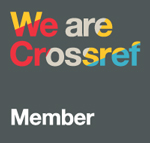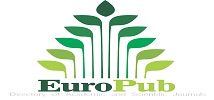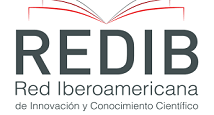Effectiveness of learning strategies in students
DOI:
https://doi.org/10.51440/unsch.revistaeducacion.2024.24.522Keywords:
Learning strategies, meaningful learning, effectiveness of strategies, educational researchAbstract
In the current context, education faces the challenge of evaluating the effectiveness of learning strategies in an environment characterized by rapid technological advances. This evaluation is not limited to comparing traditional with innovative methods, but also requires an analysis of how these strategies adapt to emerging needs in a constantly evolving academic field. In this sense, it is essential that educators and researchers analyze the impact of educational practices on the development of critical skills such as critical thinking and collaboration. Meaningful learning strategies, which allow students to build knowledge from previous experiences, are essential to achieve lasting and contextualized learning. Furthermore, the adaptability of these strategies, together with a serious commitment to educational research, guarantees that teaching methods respond to the individual characteristics of students, promoting more comprehensive and effective learning, crucial to meeting the challenges of the 21st century
Downloads
References
Hardiman, M. M. (2012). The brain-targeted teaching model for 21st-century schools. Corwin Press. https://us.corwin.com/books/brain-targ-teach-model-21c-schls-235455
Hattie, J. (2009). Visible learning: A synthesis of over 800 meta-analyses relating to achievement. Routledge. https://doi.org/10.4324/9780203887332
Méndez, L. (2002). La importancia de la planificación de estrategias basadas en el aprendizaje significativo en el rendimiento matemático en séptimo grado de la Unidad Educativa Nacional San Bolívar. Colombia: Universidad Nacional de Colombia.
Mendoza, Y. & Mamani, J. (2012). Estrategias de Enseñanza – Aprendizaje de los docentes de la facultad de Ciencias Sociales de la Universidad Nacional del Altiplano – Puno 2012, Revista investigación y comunicación y desarrollo, 3(1), 58-67. https://www.redalyc.org/pdf/4498/449845035006.pdf
Pekrun, R. (2023). Control-value theory and academic emotions: The role of metacognitive learning strategies. BMC Medical Education, 23(1), 45-57.
Valenzuela, J. (2000). Los tres autos del aprendizaje: aprendizaje estratégico en educación a distancia. http://sva99.tripod.com/Sva99/d21/Valenzuel.html
Vegas, V.R.; Guerrero, M. & Gómez, J. (2018). Estrategias educativas para la integración de los padres y representantes en el proceso de enseñanza aprendizaje. Revista Aula de Encuentro, 20(1), 95-118. https://dialnet.unirioja.es/servlet/articulo?codigo=6458232
Viloria, N. & Godoy, G. (2010) Planificación de estrategias didácticas para el mejoramiento de las competencias matemáticas de sexto grado. Investigación y Postgrado, 25(1), 95-116. https://www.redalyc.org/pdf/658/65822264006.pdf
Weinstein, C. y Mayer, R. (1986) La enseñanza de estrategias de aprendizaje. En: Wittrock, M., Ed., Handbook of Research on Teaching, Macmillan, Nueva York, 315-327.
Downloads
Published
How to Cite
Issue
Section
License
Copyright (c) 2024 Nicolás Paucar Misaico

This work is licensed under a Creative Commons Attribution-NonCommercial 4.0 International License.





















